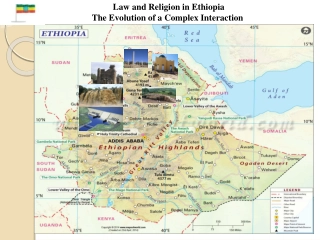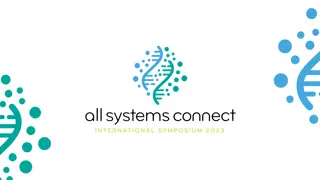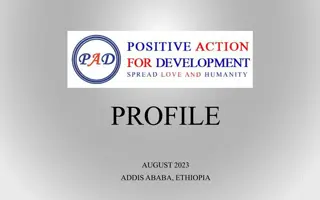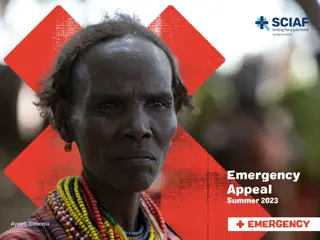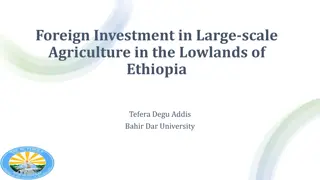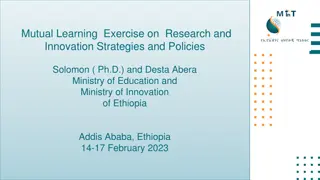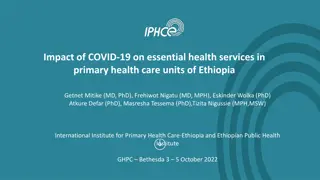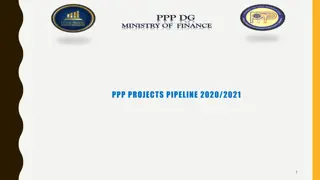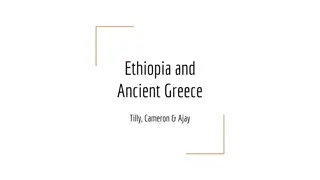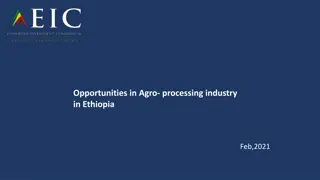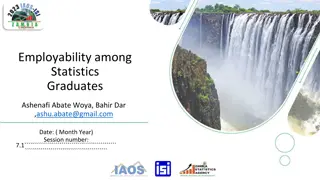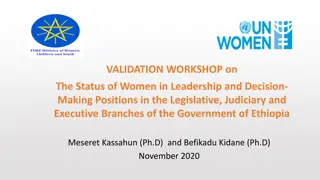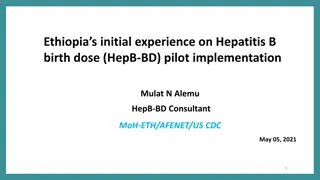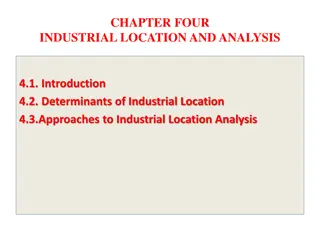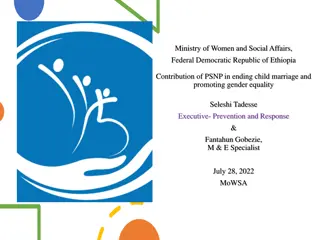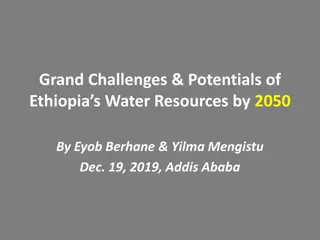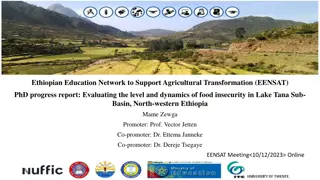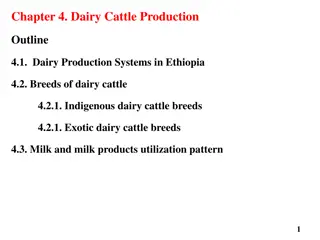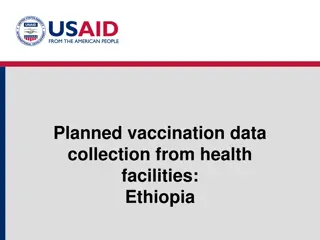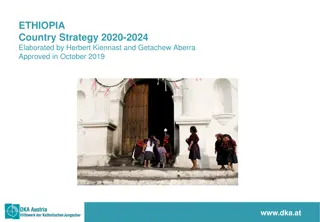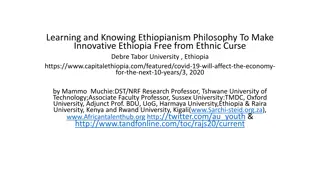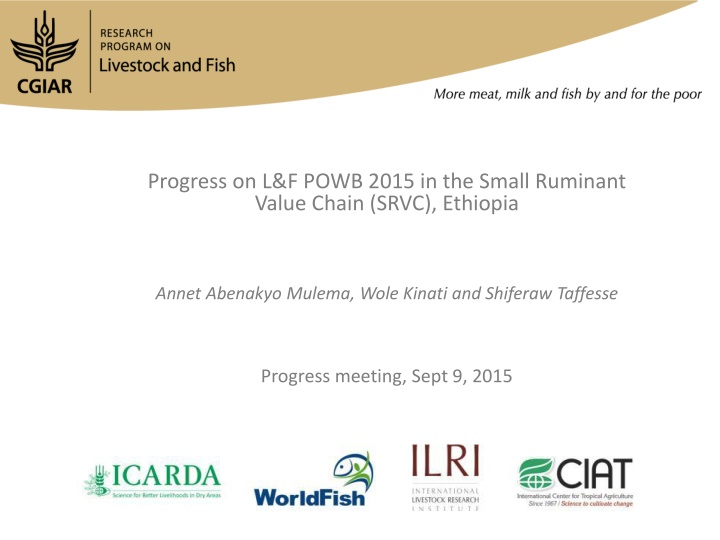
Progress on L&F POWB 2015 in the Small Ruminant Value Chain
Explore the progress made in the Small Ruminant Value Chain in Ethiopia, focusing on capacity development, intervention packages, and gender analysis. Follow the journey from gender capacity assessment to planned interventions and research activities in gender and animal health. Engage with insights and achievements from field activities, training sessions, and collaborative efforts with research partners.
Download Presentation

Please find below an Image/Link to download the presentation.
The content on the website is provided AS IS for your information and personal use only. It may not be sold, licensed, or shared on other websites without obtaining consent from the author. If you encounter any issues during the download, it is possible that the publisher has removed the file from their server.
You are allowed to download the files provided on this website for personal or commercial use, subject to the condition that they are used lawfully. All files are the property of their respective owners.
The content on the website is provided AS IS for your information and personal use only. It may not be sold, licensed, or shared on other websites without obtaining consent from the author.
E N D
Presentation Transcript
Progress on L&F POWB 2015 in the Small Ruminant Value Chain (SRVC), Ethiopia Annet Abenakyo Mulema, Wole Kinati and Shiferaw Taffesse Progress meeting, Sept 9, 2015
SASI Output 1: capacity development Already started Activity When What With/who Outputs Stage Gender capacity assessment Apr.-May 2015 Field activity 3 research partners 3 development partners 1 Report 1 blog Final Main comments (e.g. learning, successes, problems) Self discovery process Discussion took longer than anticipated Requires thorough understanding of what the parameters call for Gender mainstreaming is not institutionalized There was interest among staff to talk about gender in research and *yellow= started, green=completed, red=not started yet development but the capacities are very low
SASI Output 1: capacity development To be started Activity When What With/who Outputs Stage Gender capacity development Oct-Dec Plan for interventions TI and SRV coordinator Work plan Activity reports Not started Main comments (e.g. learning, successes, problems) Proposed interventions will include gender capacity trainings, coaching, mentoring, tools for gender analysis Scaling out the tool
SASI Output 3: Best bet intervention packages (actual research on design of intervention and learning from them) Already Started Activity When What With/who Outputs Stage Gender & Animal Health June Participatory epidemiology and gender training (PEG1) SRVC and Africa RISING partners Activity report Blog Completed June- July Field activity (FGDs) Men, women and youth groups Field reports Completed Main comments (e.g. learning, successes, problems) Partners expressed a lot of interest in and enthusiasm to integrate gender in their work The data collection tools and protocols were easily comprehended by the teams Qualitative data over summarized and lacks the social and gender dynamics Proactive participation of women in pointing out small ruminant disease constraints and their impacts on the households was exciting
SASI Output 3: Best bet intervention packages (actual research on design of intervention and learning from them) To be started Activity When What With/wh o Outputs Stage Gender & Animal Health Oct Participatory epidemiology and gender follow-up training & survey (PEG2) SRVC and Africa RISING partners Activity report Blog Research Report Gender disaggregated data set Initial stage of phase 2 (planning done ) Main comments Follow-up workshop to be conducted from Oct 5-8 to present results and introduce the survey tools Training will be provided to the research teams on Epi Info, software package for data management
Gender in Sheep fattening and FEAST Already Started Activity When What With/who Outputs Stage Baseline Nov 2014 Assessment of gender relations ICARDA, students Data set manuscripts Completed data collection Engender ing FEAST tool July 2015 Engender tool Pre-test tool ILRI/ICARDA /KIT Engendered tool Activity report Early stage Comments Its been difficult to access the baseline data. The draft manuscripts are completely gender blind The FEAST tool has been engendered and will be reviewed by team There re opportunities to fundraise to pre-test the FEAST tool
M&E: SRVC Theory of Change Already Started Activity When What With/who Outputs Stage SRVC Planning meeting June, 2015 Review of activities and planning meeting ILRI/ ICARDA partners POWB for 2016 & beyond Completed L&F ToC M&E March- April, July - August 2015 L&F SR VC progress assessment ICARDA/ four NARS research centers (AARC, BARC, DARC and MARC) Assessme nt report Completed Comments It s been difficult to obtain documents secondary data to review esp. from the NARs Small ruminant extension services were found to be week and capacity developers were limited at Woreda levels
CGIAR Research Program on Livestock and Fish livestockfish.cgiar.org livestockfish.cgiar.org CGIAR is a global partnership that unites organizations engaged in research for a food secure future. The CGIAR Research Program on Livestock and Fish aims to increase the productivity of small-scale livestock and fish systems in sustainable ways, making meat, milk and fish more available and affordable across the developing world.

